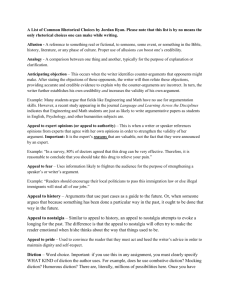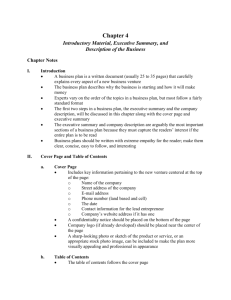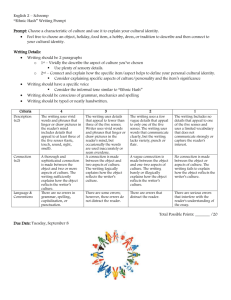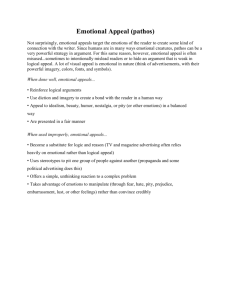What is good writing final
advertisement
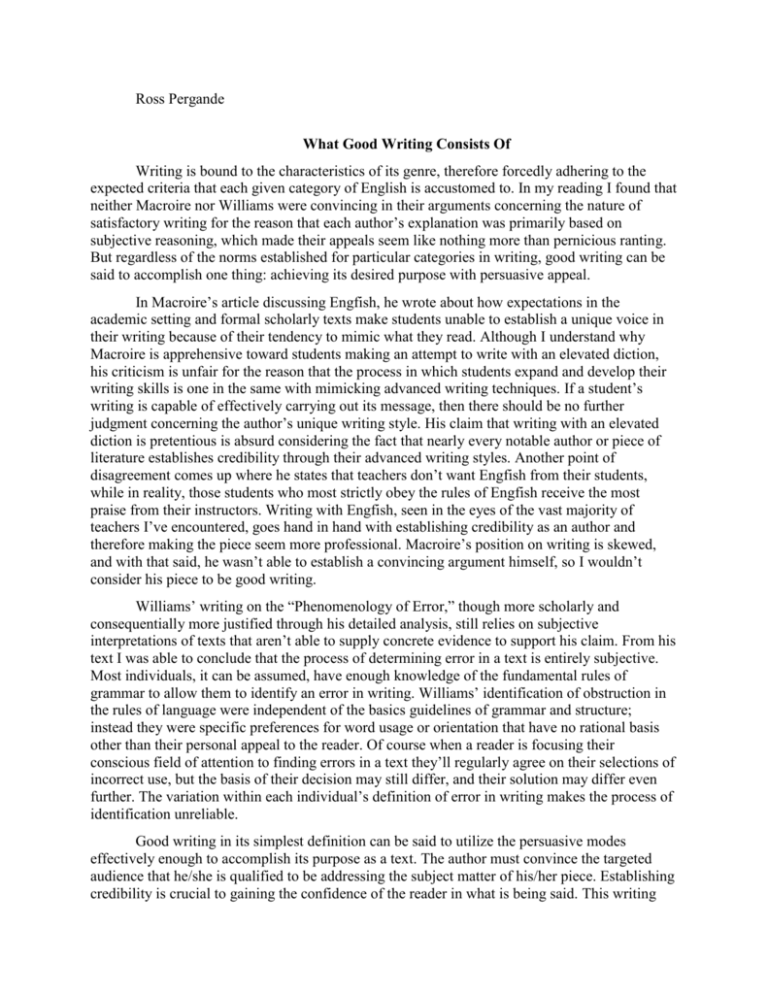
Ross Pergande What Good Writing Consists Of Writing is bound to the characteristics of its genre, therefore forcedly adhering to the expected criteria that each given category of English is accustomed to. In my reading I found that neither Macroire nor Williams were convincing in their arguments concerning the nature of satisfactory writing for the reason that each author’s explanation was primarily based on subjective reasoning, which made their appeals seem like nothing more than pernicious ranting. But regardless of the norms established for particular categories in writing, good writing can be said to accomplish one thing: achieving its desired purpose with persuasive appeal. In Macroire’s article discussing Engfish, he wrote about how expectations in the academic setting and formal scholarly texts make students unable to establish a unique voice in their writing because of their tendency to mimic what they read. Although I understand why Macroire is apprehensive toward students making an attempt to write with an elevated diction, his criticism is unfair for the reason that the process in which students expand and develop their writing skills is one in the same with mimicking advanced writing techniques. If a student’s writing is capable of effectively carrying out its message, then there should be no further judgment concerning the author’s unique writing style. His claim that writing with an elevated diction is pretentious is absurd considering the fact that nearly every notable author or piece of literature establishes credibility through their advanced writing styles. Another point of disagreement comes up where he states that teachers don’t want Engfish from their students, while in reality, those students who most strictly obey the rules of Engfish receive the most praise from their instructors. Writing with Engfish, seen in the eyes of the vast majority of teachers I’ve encountered, goes hand in hand with establishing credibility as an author and therefore making the piece seem more professional. Macroire’s position on writing is skewed, and with that said, he wasn’t able to establish a convincing argument himself, so I wouldn’t consider his piece to be good writing. Williams’ writing on the “Phenomenology of Error,” though more scholarly and consequentially more justified through his detailed analysis, still relies on subjective interpretations of texts that aren’t able to supply concrete evidence to support his claim. From his text I was able to conclude that the process of determining error in a text is entirely subjective. Most individuals, it can be assumed, have enough knowledge of the fundamental rules of grammar to allow them to identify an error in writing. Williams’ identification of obstruction in the rules of language were independent of the basics guidelines of grammar and structure; instead they were specific preferences for word usage or orientation that have no rational basis other than their personal appeal to the reader. Of course when a reader is focusing their conscious field of attention to finding errors in a text they’ll regularly agree on their selections of incorrect use, but the basis of their decision may still differ, and their solution may differ even further. The variation within each individual’s definition of error in writing makes the process of identification unreliable. Good writing in its simplest definition can be said to utilize the persuasive modes effectively enough to accomplish its purpose as a text. The author must convince the targeted audience that he/she is qualified to be addressing the subject matter of his/her piece. Establishing credibility is crucial to gaining the confidence of the reader in what is being said. This writing must also evoke an emotional response from the reader to create a passionate connection with the underlying values of the audience. Most pertinent to effective writing is the presence of logical analysis and rational basis to support their claims and opinions. Without this support, the entire structure of an argument collapses because of its close, direct impact in forming integrity with the author. Writing’s appeal is completely audience dependent, and its perceived effectiveness is determined by a multitude of factors ranging from genre to social context. Decent writing doesn’t need to be pretentious, watered down, said clearly, or convoluted. Good writing needs to realize the author’s intentions and convince the directed audience of its contents.


